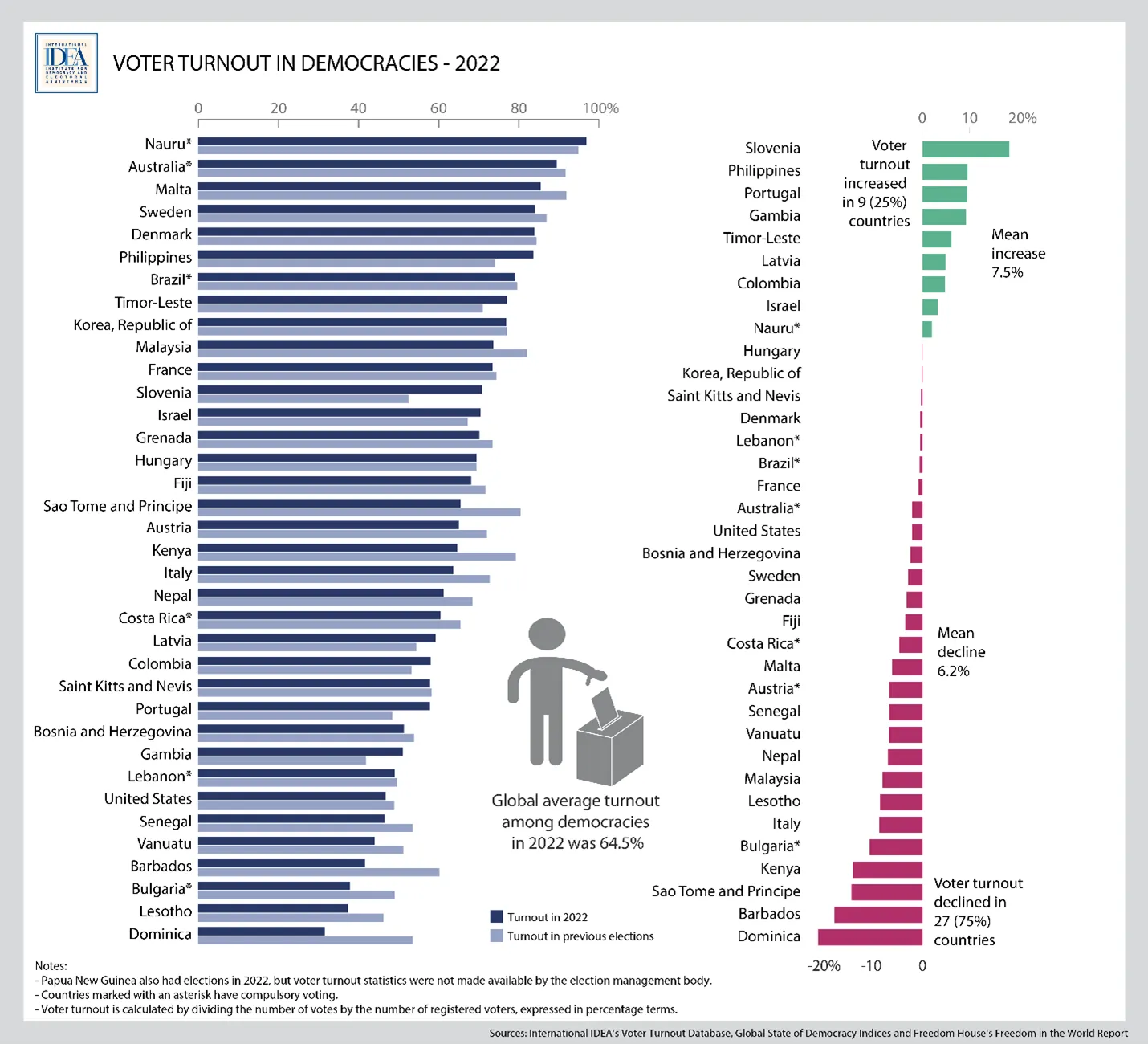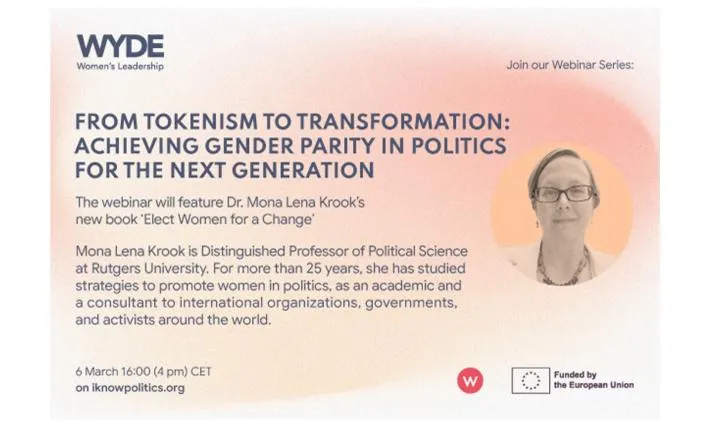More effort is needed to open election data globally

Some observations from updating the Voter Turnout Database in 2022.
At International IDEA, we track election-related data points for use in our knowledge products and publish them on our website for public use (see databases at www.idea.int). After years of advocating for open data in election administration, we realise that many electoral management bodies (EMBs) are still not entirely on-board.
Let us use the example of Voter Turnout data, which we have been tracking for almost 30 years, including this most recent overview of voter turnout in democracies in 2022. While updating voter turnout data for national elections held in 2022, we were unable to find national voter turnout data for the Democratic Republic of the Congo (DRC) and Papua New Guinea (PNG). In more than 20 countries, voter turnout data is unavailable from official sources or the EMB online.
The most commonly occurring problems are:
- EMBs don't publish voter turnout data on their websites. Media representatives get the data from press conferences held by EMBs or printed materials.
- EMBs don't have web portals at all. Media representatives get the data from press conferences held by EMBs or printed materials.
- EMBs' websites function only during the election period and cannot be accessed for extended periods between elections; in some cases, reported data are removed or inaccessible after some time. Technical errors are not addressed promptly.
- EMBs don't announce voter turnout at all. In the case of DRC and PNG, interestingly, voter turnout data have been reported by these two countries in previous elections. The problem happened only for the elections held in 2022.
- EMBs publish voter turnout data, but there are following problems with the data:
- Sometimes data are partial (e.g. do not provide national summaries, do not provide registration statistics, or do not provide the number of invalid votes).
- Sometimes reporting data is extremely delayed. For some EMBs, it takes several months to report voter turnout statistics whether for political, institutional or technical reasons.
- Data are not reliable. For example, in autocratic or hybrid regimes, voter turnout data can be inflated.
- EMBs report data in wide variety formats: starting with simple media release posted on an EMB website containing only national summaries, and up to highly disaggregated data (starting from polling stations, districts, etc. up to national summaries). It would be optimal if there was a standard to be adopted by EMBs for reporting timely, reliable and useful data.
- Ideally, we would also be able to see time-series (or historical) data: so that electoral stakeholders and scholars can compare results to previous elections or conduct analyses of trends over time.
These data-gathering problems point at a need to encourage more adherence to open data principles. Open data principles prescribe that data should be complete and accurate, without any omissions, timely and permanently available on-line, analysable in machine-readable non-proprietary formats, and granular at the finest possible level of disaggregation.
Beyond voter turnout, open data principles should be applied not only to election results, but also to other datasets such as voter registration statistics disaggregated by regions, districts, constituencies and even polling districts. Such data could benefit political parties and candidates to streamline their campaigns. Nowadays, not many countries make such data available on a timely basis.
Other examples include list of candidates published by EMBs and the publication of campaign finance expenditures. Timely, comprehensive and reliable reports on expenditures create an environment of trust and transparency among various stakeholders.
Enabling and encouraging openness of election data is not only a technical issue, but also speaks to institutional culture. A commitment to transparency and service to stakeholders needs to be combined with recognition of the potential for data misuse and of the risks related to disclosing data.
Moving forward, we would like to gauge interest, solicit ideas and build alliances to encourage open data policies and ‘habits’ among EMBs.






